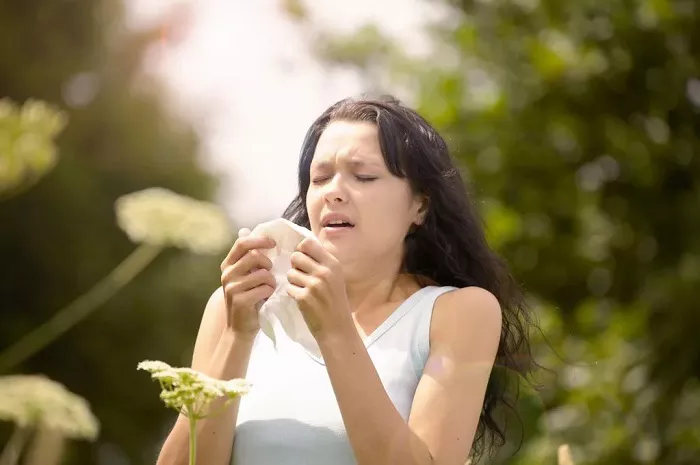After a prolonged period of hot and dry weather, heavy showers have drenched much of the UK over the past few days. However, this sudden change in weather has not brought relief to the millions of hay fever sufferers, with many experiencing worsening symptoms.
Pharmacist Allan Green has shed light on the puzzling situation. According to him, while light rain can indeed provide some respite by clearing pollen from the air, heavy rain, especially when accompanied by wind or occurring later in the day, can stir up pollen particles. This phenomenon is particularly prevalent in the western parts of the UK, where low-pressure systems from the Atlantic have been bringing wet weather.
Weldricks Pharmacy reported a staggering 3,450% increase in Google searches for “why is my hay fever worse when it rains?” in the last week alone. Mr. Green explained that sunshine also plays a significant role in pollen levels. Plants rely on sunlight for photosynthesis, so cloudy spells may temporarily reduce pollen levels. However, when the sun returns, there is a sharp rise in pollen production.
“Hay fever sufferers, especially parents of children with allergies, need to stay alert to the weather forecast and plan accordingly,” Mr. Green emphasized. It is estimated that around 13 million people in the UK are affected by hay fever.
Mr. Green advised those struggling with allergies to avoid open fields, grasslands, or areas with lots of trees. He suggested that urban parks with more paved areas than trees or flowerbeds can be a better option. Additionally, areas with natural windbreaks, such as hills or mountains, can help reduce the amount of pollen in the air, regardless of the weather conditions.
For those staying indoors during heavy rain, Mr. Green recommended closing windows fully to prevent pollen stirred up by the rain from being blown inside. Using an air purifier and drying laundry indoors can also help reduce exposure to pollen.
“By keeping an eye on weather changes and adjusting your routine accordingly, you can significantly ease hay fever symptoms, even on unpredictable spring and summer days,” he said.
Pollen levels remained low over the recent bank holiday weekend but are expected to rise in some regions this week. As of Wednesday, the Met Office forecast predicted high pollen levels in the South West, London, South East, and the East of England on Saturday and Sunday. A weather divide is developing across the country, with the north and west set for cooler conditions at the end of the week, while the south east could see temperatures reaching up to 25°C.


